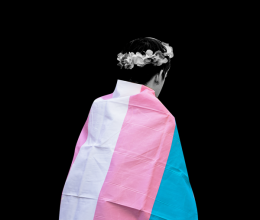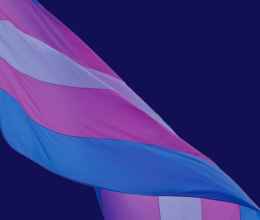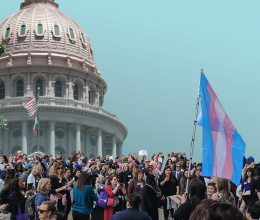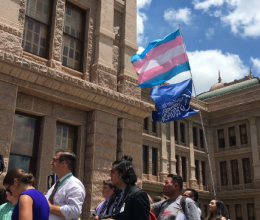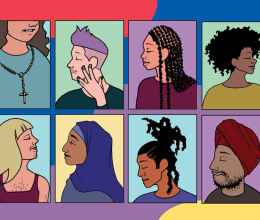
CONTENT WARNING: This blog contains mentions of self-harm and suicide that may be difficult for some readers. If you or someone you know needs support, click here for a list of resources, hotlines, and organizations.
Trans Texans are survivors, even in some of the most hostile environments in the world.
As a trans woman in Texas prison, I have endured every kind of abuse, assault, degradation, and humiliation that our state’s leaders have thrown at me.
Thanks to my relentless advocacy and a lawsuit I pursued with the ACLU of Texas, an important victory now helps me and countless others live more authentically as ourselves in Texas prisons. Now every person in Texas prison — whether a transgender woman, a non-binary person, or a cisgender man — can wear long hair thanks to a system-wide rules change. The new policy happened after I brought a lawsuit challenging the Texas Department of Criminal Justice’s (TDCJ) policy of refusing to allow transgender women in Texas prisons to wear long hair and dress and groom ourselves as women.
DEPRIVED OF NECESSITIES
I fought for this change because I am sick and tired of Texas prisons erasing and denying my existence as a transgender woman. Under TDCJ policies, I have been forced to live in a men’s prison and follow the men’s dress code. When I tried to grow my hair out to look like the woman that I am, prison guards would send me to the barber and forcibly shave my head.
These forced haircuts stripped trans women of our very identity and caused such immense distress that many of us harmed ourselves or turned to destructive coping behaviors. When you can dress and look more like the person that you know yourself to be, it removes the distress that you feel significantly. When the state takes away our identity, it reinforces the feeling of being trapped in the wrong body. It humiliates you — like a badge of shame.
As I understand it, approximately 41% of trans folk attempt suicide in our lifetimes. In Texas prisons, this rate might be even higher, since the cruelty here knows no end. Our state has one of the largest and most inhumane prison systems in the world. Basic life necessities that people provide to their pets — like respite from the heat or edible food — are often deprived to human beings in Texas prisons.
My own medical providers within TDCJ told their supervisors that I would benefit tremendously from simply dressing and grooming myself as a woman because I experience gender dysphoria. TDCJ didn’t care.
When I asked to start hormone therapy to help alleviate the symptoms of gender dysphoria, no one helped me. I was in such a dark place that I engaged in self-surgery and castrated myself. That was fully preventable. And again, TDCJ didn’t care.
I finally started hormones nine months after self-castration. I thought at that point TDCJ would let me live as myself, a woman, but I was wrong. So I geared up for legal battle.
SUING TO BE MYSELF
In 2019, I filed my lawsuit pro se, which means I represented myself, as most litigants do in Texas prisons. But the lawsuit moved slowly and didn’t stop TDCJ’s callousness against me.
In 2020, following another forced haircut, I sliced my own wrist open and nearly died. Again, TDCJ didn’t care.
In 2021, the ACLU of Texas joined my lawsuit along with the law firm Fish & Richardson P.C. With this support team, my case finally moved forward. We did the impossible. We beat every single motion to dismiss the case that the Texas Attorney General threw at us. Just a couple weeks later, TDCJ changed its grooming policy to allow every person in Texas prison to wear long hair, regardless of their gender or gender identity.
I now know dozens of my trans sisters in Texas prisons who wear long hair and are happier and less distressed. The prison system is still so immensely terrible, but being able to choose how to wear our hair is a critical component of our autonomy and self-determination that helps keep us alive.
We still have much work to do to support trans people and all people in Texas prisons. Even TDCJ’s new hair policy still has explicitly racist language that bans all “cornrows, dreadlocks, microbraids or multiple braids.” This prevents Black people in Texas prisons from wearing natural and protective hairstyles despite the passage this year of the CROWN Act — which prohibits race-based hair discrimination — in Texas.
I hope that this too will change.
It might take years or even decades to change one of the most racist, unjust, inhumane, and unfathomably cruel prison systems in the world. But we won’t stop fighting, we won’t give up, and we won’t stop being who we are, even when our prison system tries to deny us these basic rights.


